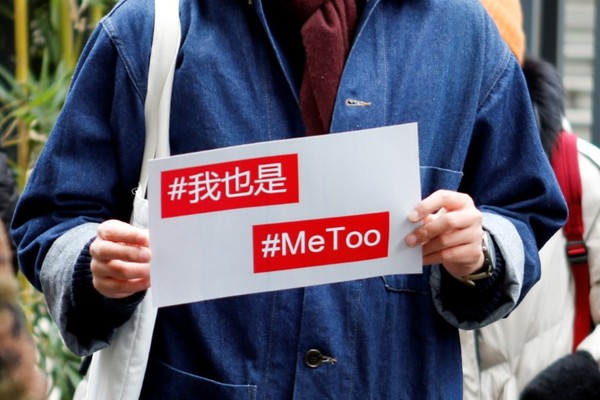
Girls Help Girls: #MeToo in China1)
Two recent sexual assault allegations posted on Chinese social media have sparked the #MeToo movement shaking up the country. The Chinese-Canadian pop star Kris Wu's alleged sexual violence began with the revelations of Du Meizhu. On July 18, she revealed that Kris had sex with women on the pretext of supporting them in the entertainment industry. In particular, she claimed that there were more than eight victims, including her, and that two of them were minors, which intensified the impact. After her first accusation, at least 24 women have revealed that they have been sexually assaulted by Kris. On August 16, the People's Prosecutors' Office in Beijing arrested him on charges of rape. Another sexual assault case that occurred at the same time as Wu's sexual assault case has created an atmosphere that has become more sensitive to sexual crimes. A female employee of Alibaba, the Chinese e-commerce company, revealed through the company intranet on August 7 that she had been sexually assaulted by her direct supervisor and a client during a business trip. The article that she wrote quickly spread to social media, ranking first in Weibo's real-time issues and racked up 500 million views. She demanded the dismissal of the perpetrator, but the company did not take any action. When this was made public and criticism began to mount up, Alibaba belatedly fired the perpetrator and established a committee for sexual harassment prevention. Since these allegations of sexual assault were exposed on social media, people are raising their voices in solidarity toward the victims using the hashtag #girlshelpgirls.
These cases have parallels with the #MeToo movement that sparked in the past. In 2018, the movement spread around the world and even rose to the surface in China. It began in Chinese universities with women sharing their experiences of sexual violence and sexual harassment by professors. However, the movement soon lost its power due to censorship by the Chinese authorities. They censored the hashtags and social media posts and blocked discussions. Further, state-run media published articles stating that sexual assault is not a big problem in China. There has been some progress since then. Last year, a civil law amendment stipulating acts of sexual harassment was passed. Still there are gaps in the law in that the punishment provisions are not clear. Also, Feng Yuan, a women's rights activist in China, said "Given the high recognition of Kris Wu and Alibaba, it is not surprising that the two cases are drawing attention." This suggests that the victim's voices can be buried if the perpetrators are not famous or influential. Nevertheless, Wu's quick arrest and Alibaba's establishment of a committee show that China has changed from the past when it was passive about sexual violence cases. Through these changes and movements, it is expected that women's voices will become a more respected society.
1) Kim Sewon, "Kris Wu, Alibaba Sexual Harassment Spreads 'China #MeToo Movement'", NEWS1, August 11, 2021


